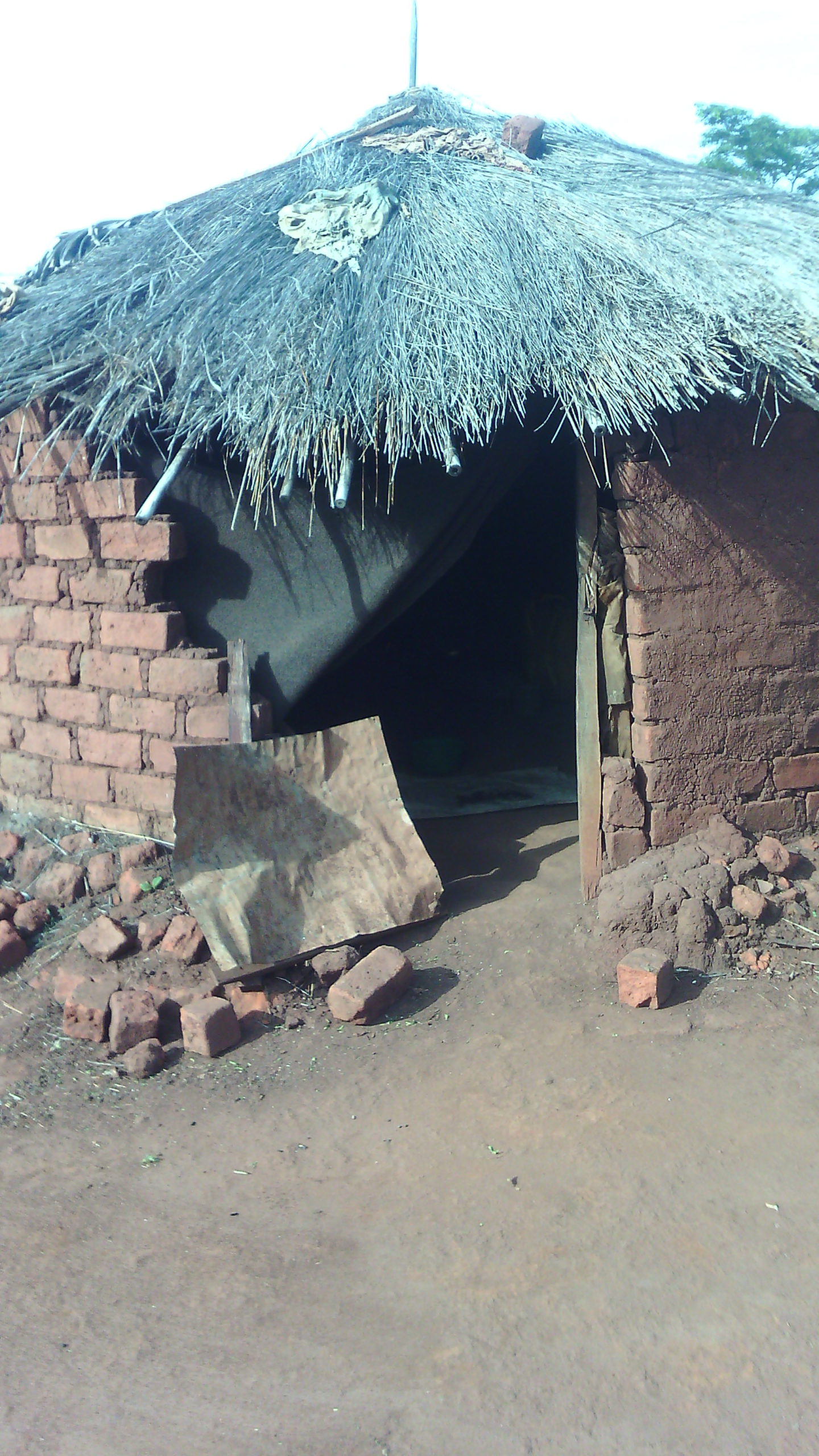A typical poor man’s living house in northern Uganda: they will never own iron-sheet roofs unless empowered.
“I don’t know why I drink alcohol, but if I drink, all thoughts and my chest pain disappear. Yesterday, I ate pan cakes worth US$ 0.151 (UGX 500) which I have lived on since then”.
LAMWO-UGANDA: Uganda ministers are often caught on camera sleeping in parliament while debates are going on. They hardly visit their constituencies to promote wealth creation.
Many of them have constructed beautiful rural homes, established enterprises like farming and animal husbandry and live in luxury while locals in their neighborhood live in abject poverty.
According to a 2014 United Nations Development Program (UNDP) report 795 million people in the world do not have enough food to lead a healthy life about which 12.9% are under-nourished in sub-Saharan Africa.
The report indicates that Northern and Eastern regions of Uganda continue to have higher levels of poverty especially among the youths between the age of twenties and forties as compared to other parts of the country. It also indicates that poverty is more endemic in rural areas compared to urban centers.
Although the Gross Domestic Product (GDP) growth rate for Uganda is at 6.20% from 2009 to 2015, its poverty rate stands at 24.5% with per capita income of US$490.
Thirty-seven year old Wilson Lajur alias Sunday, is probably one of the poorest of poor Ugandans because he spends only UGX500 (US$ 0.151) daily to feed himself although he lives hardly two hundred meters away from a rich neighbor who is none other than Hillary Obaloker Onek a cabinet minister in Yoweri Museveni’s government.
Lajur is a senior bachelor who is famous for his love for alcohol and the fact that he has had no known girl friend since becoming mature. He lives alone on his paternal grandfather’s land in Ayu Lupur village, Palabek Gem sub-county in Lamwo district of northern Uganda. He is also known to be very generous when it comes to giving out the alcohol he buys for himself and for not claiming back his balances whenever he buys drinks.
Lajur is just an example of the lost generation in northern Uganda. He missed the opportunity to go to school because of the insurgencies lasting over 23 years in the region. He was raised by a single mother in a concentration camp and he is one of those “young men” who have never known the economic value of land or learnt how to till.
I met Lajur on Wednesday, April 20, 2016 from the home of his maternal uncle, one Dominic Otika and I requested him to take me for a guided tour of his homestead which is located a few meters away from his uncle’s home to the east.
The grass-thatched house, which doesn’t seem fit for human habitation is just about one hundred meters away from his uncle’s. Its wall, made of burnt red bricks, is crumbling apart on the left hand side as you enter the house. He has tied an old blanket at the entrance which acts as a door. Inside the house, you hardly find anything clean. There are a few cooking utensils, plastic plates and a cup, a hoe, a twenty liter plastic water container, an old mattress and worn out bed sheet.
The compound has a drying rake and a fruiting mangoe tree. He neither has latrine nor a bathing shelter. An opening field which one could expect to be a garden and seems to have been planted with potato and cassava in the last planting season has no indication that it is being prepared for the new planting season and yet Lajur’s neighbors have already begun planting crops like maize, cassava and green vegetables to fight hunger and poverty.
Lajur is just an example of the millions of Ugandans who have not benefitted from among the many alleged government programs geared toward eradication of poverty like the National Social Action Fund (NUSAF) and Peace, Recovery and Development Program (PRDP) and many others.
When I asked him why he over drinks and why he does not want to till land and what he ate last night, Lajur says he ate three pan cakes for supper last night and that he drinks to forget about his chest pain which has persisted for years.
“I don’t know why I drink alcohol, but if I drink, all thoughts and my chest pain disappear. Yesterday, I ate pan cakes worth US$ 0.151 (UGX 500) which I have lived on since then”.

















